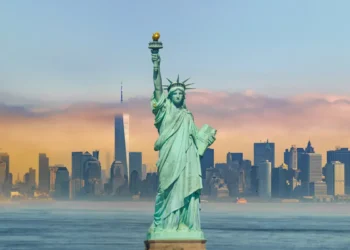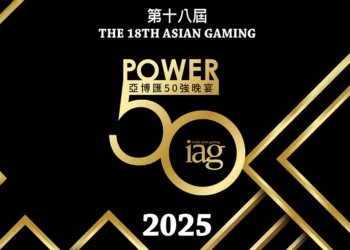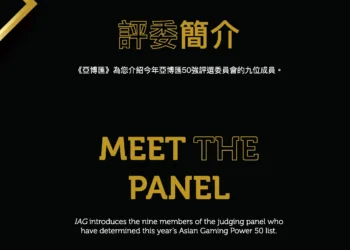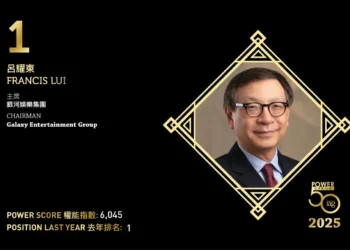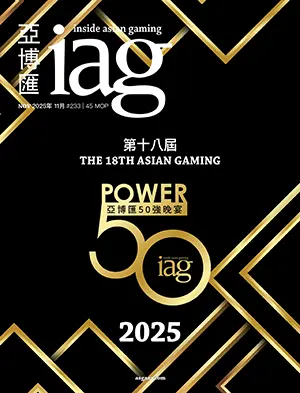Taiwan’s long-awaited gaming law is headed for passage early this year with casinos on the main island out of the picture—or are they?
Seventeen months have come and gone and nothing has happened since the residents of Matsu voted to bring casinos to their little islands in the Taiwan Strait. With a reserve characteristic of people who aren’t accustomed to much they’ve held their peace while the politicians in Taipei drag their feet.
Then one day in early October of last year, in front of the Legislative Yuan, Taiwan’s national lawmaking body, one of them finally spoke up.
The Yuan at that point had yet to agree on a bill to guide the licensing and regulation of Matsu’s casinos, and Yeh Kuang Shi, minister of Transportation and Communications, the man in charge of the government’s end of the whole tangled process, was making an appearance. That’s when a member from Matsu stood up and asked what the government planned to do about upgrading the larger of the island’s two modest airports, a project critical for the tourists and gamblers the American William Weidner has promised to bring in their millions.
The minister’s answer was anything but what Matsu expected to hear—and it had just about everyone else in the chamber floored as well because it sounded like a shift in government policy away from a longstanding opposition to casinos on Taiwan proper.

He began by restating what Weidner Resorts already had proposed: that the casino developers pay for the improvements. But he didn’t stop there. He went to say that gaming on Matsu wouldn’t be worth much, in his view, if it was off limits to mainland Chinese. A better idea, he said, would be to bring it into the special new economic zone at the country’s main airport, Taoyuan International. Given the proximity to Taipei it would make more money, some of which could be diverted to development on Matsu, and the airport could get its upgrade that way. He said if the Yuan gave the OK he was ready to set his ministry to work on just such a plan.
It wasn’t the first pitch for casinos on Taiwan. Since the return to power in 2008 of the rightist, pro-business Kuomintang it comes up again and again. Prominent advocates include Chen Ken Te, a KMT lawmaker from Taoyuan who co-chairs the Transportation Committee in the Yuan that funds Mr Yeh’s ministry. Billionaire electronics magnate Terry Gou is another. He wants to see a special resort district with casinos created in New Taipei City, an idea said to have the backing of former vice premier and New Taipei City Mayor Eric Li Luan Chu. Mr Chen is pushing for casinos at the airport SEZ in league with Taoyuan Mayor John Wu.
The difference is that no member of the government has ever endorsed the idea in public, that is, until Mr Yeh dropped his bombshell in October. And the minister himself has stated more than once since taking office last year that casinos are not a consideration for the main island. Why he departed from the script that day in the Yuan is a mystery. For sure it got the industry’s attention. People close to the scene are still wondering about it. They say he hadn’t cleared his remarks with the ministry beforehand. They also say he’s been frustrated with the slow pace of progress at the SEZ, and maybe he let that slip.
The SEZ—the much-hyped Taoyuan Aerotropolis—the gateway to Taiwan’s economic future, as the government trumpets it, is a sprawling high-tech mega-city 45 kilometers from Taipei, 4,500 hectares in size, the locus of a projected NT500 billion in private-sector investment (US$17 billion) and spinoffs forecast at more than NT2 trillion, including 300,000 jobs. A tempting spot for some big hotels with big casinos, no question about it—right on the doorstep of a bustling city of 9 million—and all those mainlanders, a half-billion or more, within a few hours’ flight.
Yet the package of casino regulations the government has approved, the Tourist Gambling Site Management Act, when it was finally sent to the Yuan last spring, makes no reference to Taipei, Aerotropolis or Taiwan. This prompted Tsai Cheng Yuan, a KMT legislator from Taipei, to propose expanding the Offshore Islands Development Act, the constitutional basis for gambling in the Taiwan Strait, to include the phrase “and other relevant acts,” which paved the way for Mr Chen, who represents Taoyuan County, to offer an amendment to the law governing Aerotropolis to specifically permit casinos.
Anita Chen is managing director of gaming consultants Park Strategies Taiwan. Writing late last year in Global Gaming Business, a US trade monthly, she said: “It is reasonable to conclude that Yeh has been mulling over the possibility of allowing gaming as a means to accelerate the progress of the Aerotropolis development. He has also been quietly considering alternative ways to make gambling (other than offshore island gaming) viable in Taiwan and is interested in nurturing support from the legislature for an official mandate for his ministry.”
So it’s plausible to believe the minister’s remarks that day in the Yuan had not come out of the blue after all. But if policy is indeed shifting it will somehow have to be reconciled with the letter and the spirit of the government’s commitment to developing the offshore islands. It will have to contend also with a popular mistrust of the gaming industry that runs deep among Taiwanese.

It had done neither by December when the Tsai and Chen proposals hit a wall. The opposition Democratic Progressives, who had brought an end to the Nationalists’ one-party state in the 1980s and governed from 2000 to 2008, are unshakably anti-casino. Atthe same time there aren’t enough pro-casino members among the KMT’s current 26-seat majority who feel strongly enough about it to want to deal with the controversy. The day after New Year’s the Yuan’s Transportation Committee bucked its own co-chairman and struck out 83 of the 113 provisions contained in the government’s draft regulations. What they left was a framework to guide the licensing of casinos but only in accordance with the Offshore Islands Development Act, which means only on the six archipelagos in the Taiwan Strait, and only by popular assent. And they included in their revisions a measure to block any public investment in the industry.
For the advocates of a greater Taipei market, while their hopes aren’t dead, they are now officially on life support, tabled for negotiations by a broader group of legislators before the commmittee’s verdict is presented to the full Yuan for review. The chance, of course, exists that those discussions could result in a resurrection. It isn’t a very good one, though.
According to Ms Chen, “In Taiwan’s political and social atmosphere, any effort to push for legalization of mainisland gaming at this moment would only offer free ammunition to antigaming groups and cause unnecessary delays in passage of the gaming law.”
For the government and the inhabitants of Matsu, all 7,000 of them, that comes as a considerable relief.
Magic Man
When Penghu scheduled a referendum on casinos shortly after the Offshore Development Act was passed, opponents saw it as a critical first line of defense. Closer to Taiwan than Matsu and five times larger, with 10 times more people, more developed, more prosperous, it was the scene of an all-out campaign by the DPP. Tsai Ing Wen, the party’s leader at the time who would later run for president, flew in personally to speak against the evils of gambling. The referendum lost.
Thirty kilometers to the northwest it’s been an entirely different story. Tiny Matsu, 19 islands hugging the coast of China with a total land mass about the size of Macau, is at its closest point only about eight kilometers from Fujian’s baccarat-hungry millions. It has local charm going for it and spectacular natural beauty and that’s been about it since the Cold War military garrison pulled out a decade ago, taking with it most of what there was by way of an economy. When its inhabitants went to the polls in the summer of 2012, it was with hopes for a brand of magic the pro-casino camp had had three years since Penghu to get better at conjuring. It was still a tough sell. The margin was 420 votes out of about 3,000.
The difference was Weidner Resorts and its founder and chief executive Bill Weidner. The former president of Las Vegas Sands arrived on Matsu with an enormous reputation as the executive who’d made LVS a force on the Las Vegas Strip and who’d opened Macau and Singapore to the Western gaming industry.
The spot his company has selected on a coastal promontory on Beigan, one of the two main islands, calls for 2,000 hotel rooms and an array of entertainment and lesiure attractions, the first phase of a cluster of planned resorts ultimately housing 26,000 rooms. Mr Weidner predicts 1 million visitors in his first year of operation, 4.5 million after five years, 70% of them from the mainland. That’s a lot of consumers for a place whose tourist numbers don’t top much above 100,000 a year, only about 7,500 of them from China.
He has said he has commitments from a consortium of banking giants for around US$2.5 billion, a substantial portion of which also will be dedicated to bringing Matsu’s primitive infrastructure into the 21st century. This will include a ferry harbor and a bridge to the other main island of Nangan and electrical generation and water-treatment facilities and an expansion of Beigan’s single-runway airport.
“I don’t see any problems that cannot be solved by modern technology,” he’s told them.
He’s also promised to build a university to train the islanders to fill the 5,000 jobs (70,000 at full build-out) he says he’ll create.
But his clincher may have been the promise of a monthly stipend for every resident—NT18,000 in Year 1 ($600), increasing to NT80,000 ($2,667) by Year 5.
It’s difficult to imagine what all this must sound like to people who live with almost no commerce at all, not a supermarket or department store, not a hospital or clinics or even doctors except those serving the military.

It will be at least five years before they see any of it, though. That’s the time frame observers posit for completing the land deals and getting the transport and power infrastructure up to speed.
“We optimistically expect that the earliest time the casino could open to public in Matsu is around 2019,” says Lin Kuo Shian, director-general of the department that oversees gaming for the Transportation Ministry.

That’s assuming the Tourist Gambling Site Management Act passes soon in 2014, which looks promising because the administration of President and Kuomintang Chairman Ma Ying Jeou has included the act with the bills it considers priorities, meaning it is slated for legislative review in the current session. It is not beyond the realm of possibility that the government could begin accepting license bids for Matsu this year.
Liu Day Yang, an economist who is advising the government, says the number of licenses has yet to be determined, but their number will be fixed, at least for the first 10 years, and they’ll be good initially for 30 years. There will be a minimum investment requirement.

The tax regime will not be unfriendly: an effective 14% initially, composed of a 7% “franchise fee” that gradually increases after 15 years and a local government tax capped at 7%. There had been talk of a 20% tax on winnings, which wisely was scrapped.
Regulatory oversight will be handled by the Transportation Ministry’s Bureau of Tourism and Gaming and it will be based largely on the Singapore model, which is to say it will be strict. Global standards will apply to the testing and certification of EGMs and other equipment. Advertising will be prohibited. Gambling cannot exceed 5% of gross resort floor area. Operators will be expected to take the lead on social responsibility and file regular reports on their problem gambling initiatives, which must include some type of system for alerting players to their losses. The casinos will be off limits to ATMs, and Taiwanese players could be barred on the basis of their credit histories or whether they receive public assistance. As in Singapore those running into financial problems could find themselves excluded at the request of family members. No credit or debit cards will be accepted from Taiwanese, and markers will be restricted to players depositing a minimum of US$2 million.

On the all-important question of junkets, policy is still being formulated, Mr Liu says, although it appears that it will come down somewhere between Macau’s permissiveness and Singapore’s hostility, with limited licenses, at least in the beginning, and a statutory cap on commission rates.

“The Singapore model will be followed more closely than Macau’s,” says Mr Liu. “They’re very wary of bad guys and very concerned about money laundering and other crimes. I believe it will start restricted, but if it goes well it could be expanded.”
Rough Seas
It’s reported that pro-casino forces are marshaling their resources for another crack at Penghu, where an Isle of Man-based company called Claremont Partners owns 10 hectares on which it wants to develop a gaming resort.
Their spokesman has said, “We continue to conclude that Penghu very much remains a viable location.”
Caesars Entertainment is reported to have sent an executive to have a look at the Kinmen island group a little farther down the China coast, where half a century ago the Nationalists were trading artillery fire with Mao’s forces just across the water in Xiamen. Kinmen also has hosted Liu Yung Hsiang, president of Taiwan construction giant Howarm. He visited a year or so ago in the company of Macau junketeer and casino operator Jack Lam, whose Jimei Group does business all over East and Southeast Asia.
As for Matsu, while a number of global names have expressed interest, only Weidner has advanced an actual biddable plan—a fact that has not been lost on Mr Yeh alone. Ms Chen has said that “Other senior cabinet officials have doubts whether a Matsu casino can be successful because of the challenges in transportation and infrastructure that Matsu must overcome.”
The locals say they’re not concerned. “Weidner has the will, but there are other companies that are waiting for the act to go through parliament,” says Matsu’s tourism head Liu Te Chuan. “We don’t know how many will come forward.”


The key to all this is, of course, mainland China. No resort-scale gaming model can work in the Strait without its numbers and its passion for gambling—“which could all but eliminate any significant interest on the part of prospective integrated resort developers given that mainland Chinese citizens would be the primary target customer for any casino built on the outlying islands,” writes Grant Govertsen, a principal of Las Vegas-based investment brokers Union Gaming Group and the firm’s Asia analyst.
In the tradition of relations between the two Chinas the issues are at once simple and complex.
The simple part is that gambling is illegal in the PRC. In Macau it was grandfathered in based on a unique system of political autonomy that was established on its repatriation from Portugal. Hong Kong has a similar arrangement. Taiwan, on the other hand, is considered a renegade province, which to be logical means that in Beijing’s eyes PRC law must in some measure apply. How this would ever work in practical terms is a moot point. But it did result in a clause in the historic 2008 Cross-Strait Agreement between the two governments that forbids travel agents and tour groups from organizing gambling trips from the mainland or involving its citizens in gambling activities. The National Tourism Administration holds to a similar position, and this was affirmed last year when the question of Matsu was broached with a spokeswoman for the State Council’s Taiwan Affairs Office.
“People who follow Taiwan gaming and Taiwan-China politics believe that these comments were simply a restatement of the PRC’s current general official position on gambling,” says Ms Chen, “and that it would be a mistake to assume they reflect a State Council decision specifically to discourage PRC citizens from traveling to Matsu to gamble.”

Nonetheless, where it gets complicated is whether this also applies to mainlanders entering Taiwan as individuals. Such a scheme was initiated in 2011 and has since been expanded to include 31 provinces and cities. It cuts off at 2,000 visitors a day. The quota for visitors in tour groups is 5,000 a day. Still, the mainland is Taiwan’s largest source of visitors by far, totaling more than 2.6 million through November, an increase year on year of almost 12%.
Six years ago, there were none.
Interestingly, Mr Liu, for one, doesn’t see a big problem with China. They’ll come, he says, because the resorts the law envisions will be overwhelmingly non-gaming with casino areas clearly segregated.
Mr Weidner, in the meantime, has reached across the Strait, apparently with some success, to sell officials in Fujian with its 37 million inhabitants on the wisdom of joining forces. This resulted in December 2012 in Weidner Resorts signing a preliminary agreement with a Hong Kong ferry operator for service between Matsu and Fujian’s capital of Fuzhou. Weidner also has proposed developing a supporting tourist hotel in or around Fuzhou, whose 4.4 million urban residents, together with Xiamen’s 5 million farther south, are considered vital to the success of whatever gets built on Matsu.
But these are still very choppy political waters. Relations between the PRC and the Republic of China have thawed considerably over the last decade, but if the Kuomintang are serious about cashing in on the Asian gambling boom, and obviously they are, the idea of entrusting their fortunes to the effective control of policies dictated in Beijing is something they’ll continue to consider carefully.
In the end, it’s the strongest argument for keeping Taipei and Aerotropolis on the table.
“Even under the assumption that there would be little or no mainland Chinese visitation to an IR in Taipei,” says Mr Govertsen, “we think one could still be successful.”






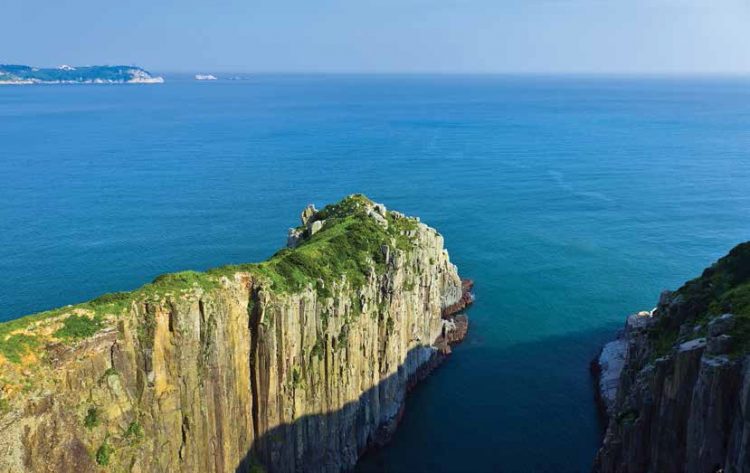

-120x86.jpg)



